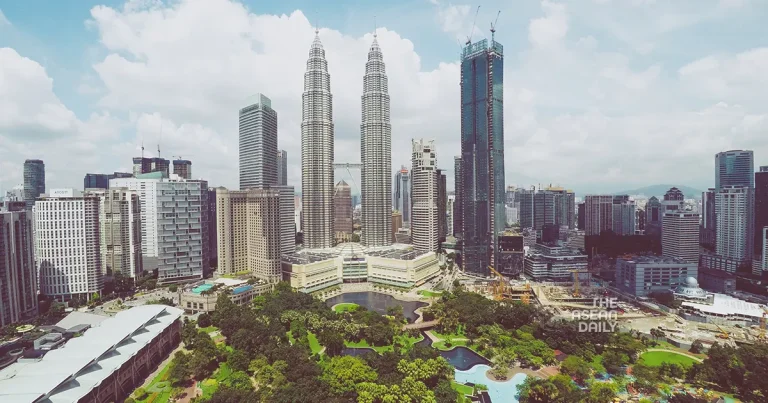30-6-2024 (KUALA LUMPUR) Malaysia’s long-standing “Malaysia My Second Home” (MM2H) residency visa scheme, once a popular choice for foreign retirees seeking a comfortable and affordable retirement destination, has seen a significant decline in interest from potential applicants following the latest revamp of rules. Industry players report that the mandatory requirement for applicants to purchase property in the country and hold it for a minimum of 10 years has dampened the enthusiasm of many prospective retirees.
Even a new category of visas introduced for residents in special economic or financial zones, aimed at attracting digital nomads and high-net-worth individuals to upcoming developments in Johor, is unlikely to revive the scheme’s appeal.
British national Mohamed Shabir, 41, who had initially planned to retire in Malaysia with his two children, shared his change of heart after learning about the compulsory property purchase. “I was interested in the Silver five-year visa scheme, and the mandatory property purchase does not make sense, and what is worse is the requirement to hold it for 10 years. I will keep my options open to other countries in Asia such as Thailand and Indonesia as I like the beauty and diversity of the continent,” said Mr. Shabir, who currently works at an investment bank in the United Kingdom.
Under the fresh guidelines released in June, qualified applicants are required to have bank deposits ranging from US$150,000 ($203,300) to US$1 million, and purchase a property with a minimum value from RM600,000 (S$172,000) to RM2 million, depending on the category of visa they apply for. Additionally, they must hold the property for at least 10 years.
Agencies that process applications for the residency scheme have reported a significant decline in interest, with as many as 90 percent of prospective applicants losing interest since the new policy was announced on June 14.
“Initially, we had over 500 interested applicants, but the number has dwindled to less than 50 due to the revised regulations. Malaysia has revised the MM2H programme twice in the past three years, and these changes have made foreigners feel unwelcome and unwanted,” said Ms. Farisa Athirah, a senior executive at My Expat MM2H agency based in Kuala Lumpur.
Another expatriate services agency in the capital city, which preferred to remain anonymous, shared that their clients are disappointed by the new rules, particularly with the mandatory purchase of property, as they would need to spend a minimum of RM1.7 million to more than RM6 million, depending on the visa scheme chosen.
When the MM2H scheme was first introduced in 2002 to attract retirees, it brought in 48,471 foreign retirees and their dependants who contributed an estimated RM58 billion to the local economy over a 17-year period, according to industry experts. However, subsequent rule changes in 2021 under the previous government, which hiked the level of investment needed and flip-flopped on the visa conditions, have discouraged applicants, resulting in an estimated RM9 billion lost to the local economy from 2020 to 2023, not discounting the effects of the Covid-19 pandemic, said Dr. Geoffrey Williams, founder and director of Williams Business Consultancy.
The government’s aim in releasing the latest guidelines is to attract high-net-worth individuals and digital nomads, making Malaysia their top destination, according to Tourism, Arts and Culture Minister Tiong King Sing. A source close to the matter revealed that the government has revised the guidelines to change the profile of applicants and attract wealthy individuals to the country, apart from its aim to boost the property sector.
However, the immediate reaction from would-be applicants has not been promising. The special economic and financial zones category, which requires the lowest level of bank deposits at just US$32,000 for those aged 50 and above and currently has no minimum stipulated value for the property purchase, has failed to generate significant interest due to the requirement to buy the property directly from a developer and hold it for at least 10 years.
Singaporean Ahmed Tarmeze Khan, 45, expressed his reservations, saying, “This SEZ (special economic zone) and SFZ (special financial zone) scheme is enticing, but if the location to buy a property is constrained to just Forest City in the SFZ, and it must be bought from a developer, this gives us a limited choice of where we should buy a property and stay for the next 10 years. I may not want to take up the scheme, given these restrictions.”
Economists say the new MM2H rules would add limited value to the local economy because the residency scheme is now more restrictive and less attractive. Dr. Williams noted that the new MM2H residency scheme, which targets only high-net-worth individuals, will attract fewer expatriates, resulting in minimal impact on the economy. Even the SEZ and SFZ categories will fail to turn the tide because they require investments in property that foreigners will not want to commit to for 10 years, he added.
“The new scheme will not add much value to the economy despite the mandatory property purchase. The flip-flop in policies has already made people very cautious,” Dr. Williams remarked.
Shankaran Nambiar, an economist at the Malaysian Institute of Economic Research, questioned whether the government has overestimated foreigners’ interest in Malaysian property, especially when the country is competing against similar schemes offered by neighboring Thailand and Indonesia.
“The government has failed to correctly assess the demand for homes, as there will still be unsold units or unrented units because developers would have expected more buyers after the new revised rules of MM2H,” Mr. Nambiar said.




